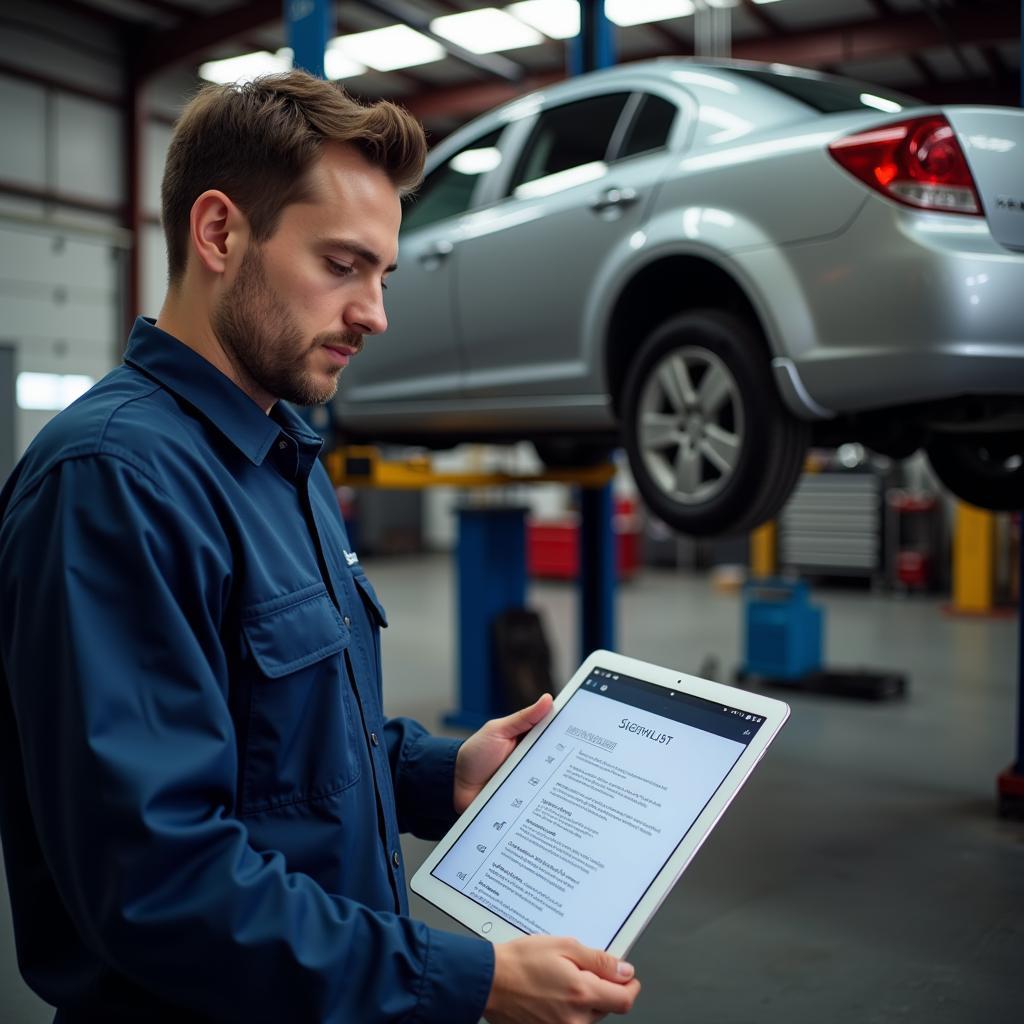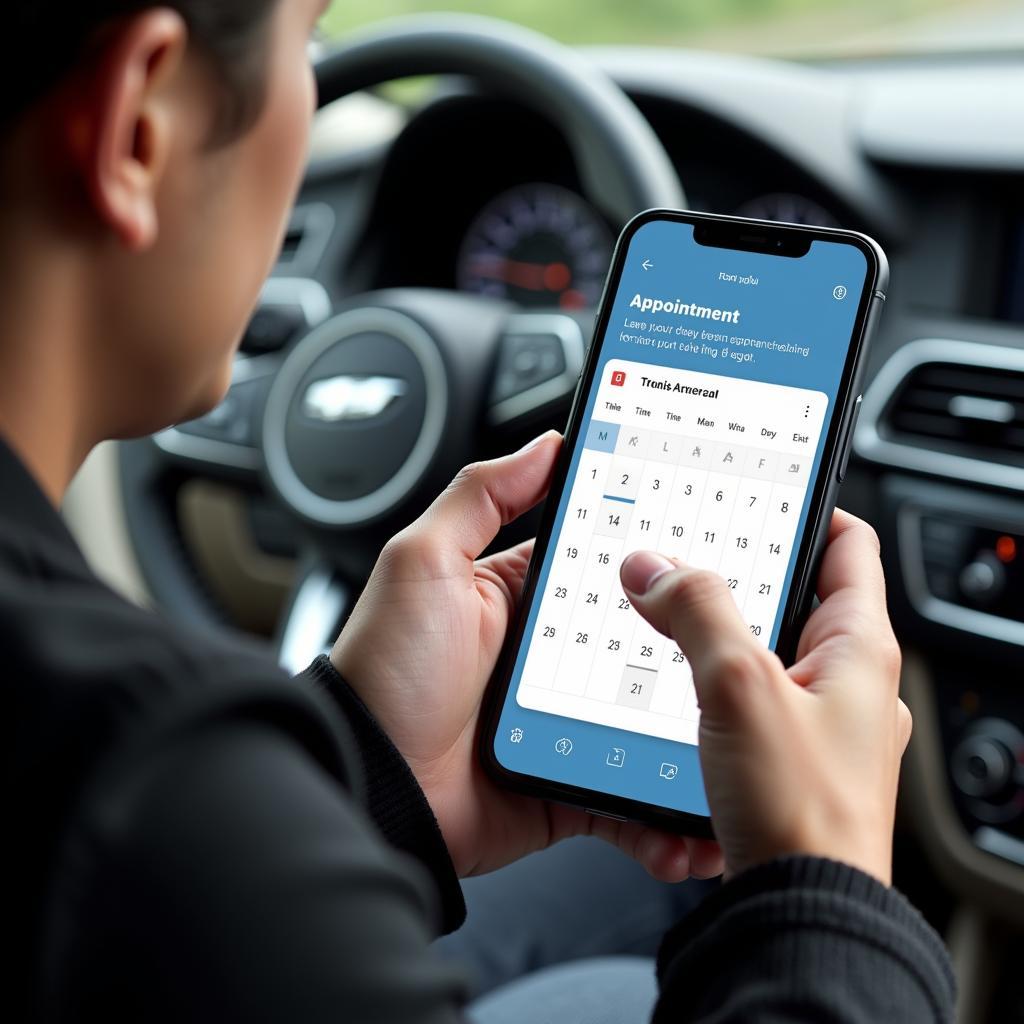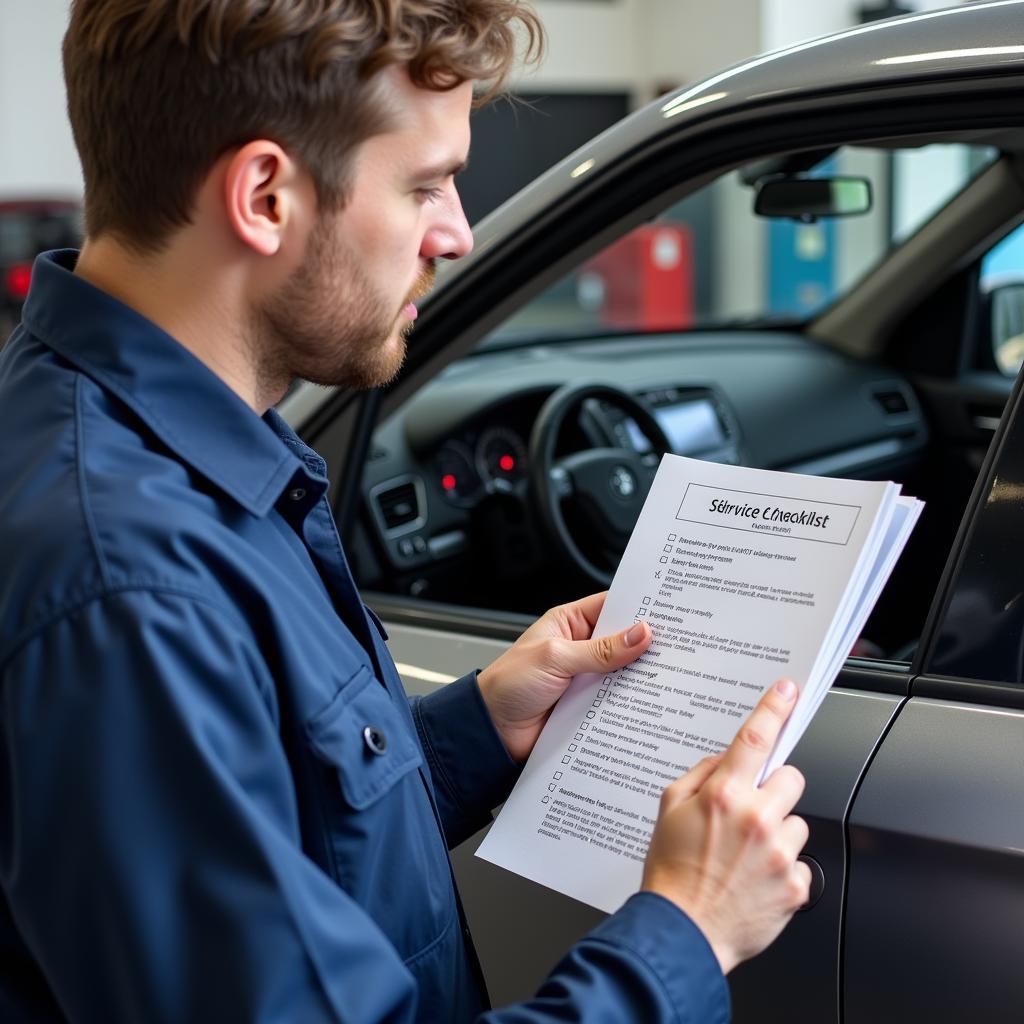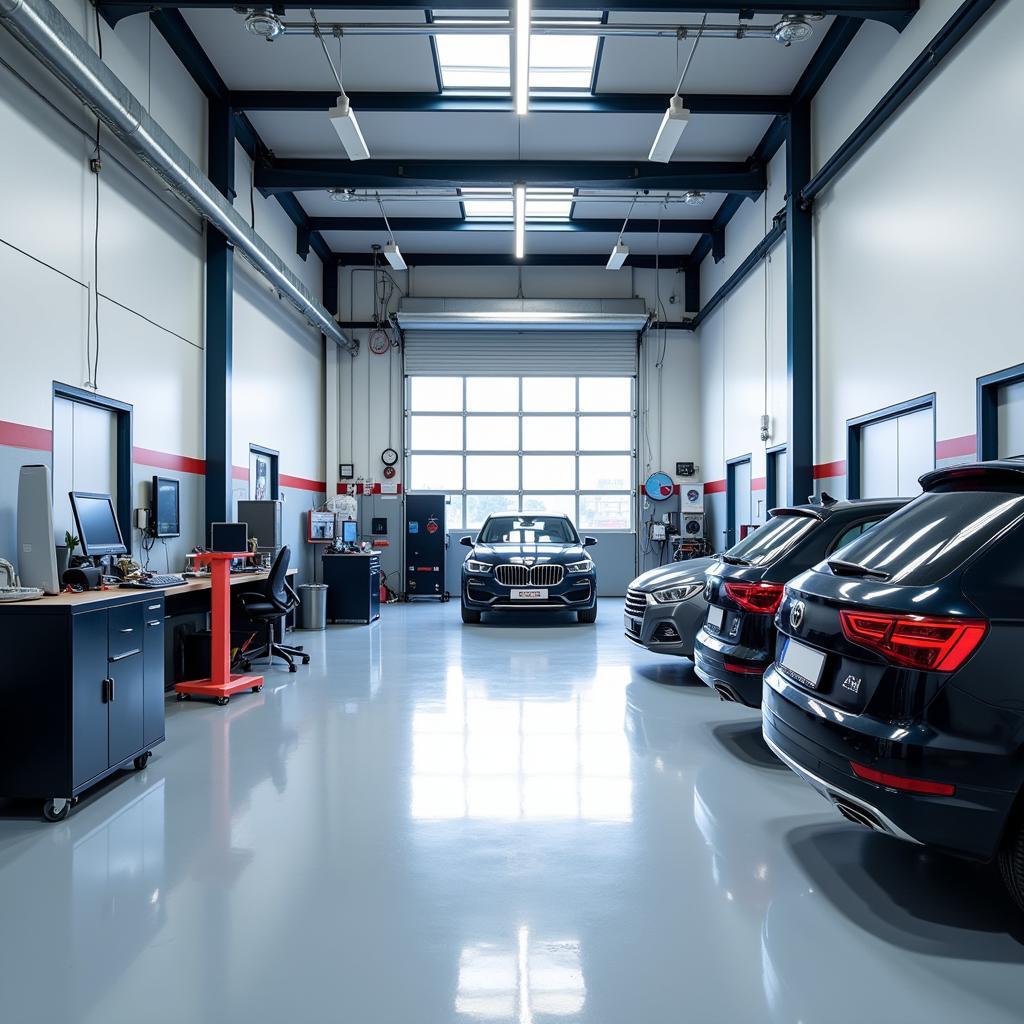What’s in a Car Service? A Comprehensive Guide
When you hear the phrase “car service,” you might picture a quick oil change and tire rotation. While those are essential components, a car service encompasses much more. Understanding what’s included in a car service and why each element is important can save you money and keep your vehicle running smoothly for years to come.
Beyond the Basics: Unveiling the Layers of a Car Service
A car service is designed to maintain and improve the overall health of your vehicle. It’s a preventative approach to car care that identifies potential problems before they become major issues. A comprehensive car service typically includes:
1. Essential Fluid Checks and Changes:
- Engine Oil: The lifeblood of your engine, oil lubricates moving parts, reduces friction, and helps prevent overheating. Regular oil and filter changes are crucial.
- Coolant: Keeps the engine operating within a safe temperature range, preventing overheating and damage.
- Brake Fluid: Transmits force from the brake pedal to the wheels, ensuring safe stopping.
- Transmission Fluid: Lubricates and cools the transmission, facilitating smooth gear changes.
- Power Steering Fluid: Assists in turning the steering wheel effortlessly.
- Windshield Washer Fluid: Essential for maintaining clear visibility while driving.
2. Filter Inspections and Replacements:
- Oil Filter: Removes contaminants from the engine oil, ensuring optimal engine performance.
- Air Filter: Prevents dirt and debris from entering the engine, ensuring proper airflow and combustion.
- Cabin Air Filter: Cleans the air entering the cabin, removing dust, pollen, and other allergens.
3. Vital Component Inspections:
- Brakes: Inspection of pads, rotors, calipers, and lines to ensure safe stopping distance.
- Tires: Checking tire pressure, tread depth, and overall condition for optimal handling and fuel efficiency.
- Battery: Testing battery voltage and inspecting terminals for corrosion.
- Belts and Hoses: Examining for signs of wear and tear, cracks, or leaks.
- Lights: Ensuring all exterior and interior lights function correctly.
- Exhaust System: Checking for leaks, damage, and proper emissions.
4. Comprehensive System Checks:
- Steering and Suspension: Inspecting for wear and tear in components that affect handling and ride comfort.
- Electrical System: Checking the alternator, starter, and wiring for proper function.
- Cooling System: Inspecting the radiator, water pump, and hoses for leaks and proper coolant flow.
- Fuel System: Checking for leaks and ensuring proper fuel delivery to the engine.
 Car Service Checklist
Car Service Checklist
Why Regular Car Services are Essential
Think of car services as regular health check-ups for your vehicle. Here’s why they matter:
- Safety First: A well-maintained car is a safer car. Regular checks of brakes, tires, and other critical components can prevent accidents and ensure your safety on the road.
- Enhanced Performance: Regular service keeps your engine running smoothly, improves fuel efficiency, and can even enhance your car’s performance.
- Prevent Costly Repairs: Catching minor issues early can prevent them from turning into major (and expensive) repairs down the road.
- Increased Resale Value: A well-maintained car with a complete service history will command a higher resale value when you decide to sell or trade it in.
What Impacts the Cost of a Car Service?
Several factors influence the cost of a car service:
- Make and Model: Luxury or high-performance vehicles often require specialized parts and fluids, which can be more expensive.
- Service Type: A basic service will cost less than a major service that involves more extensive checks and replacements.
- Location: Labor rates and part costs can vary depending on your geographical location.
- Service Center: Dealerships typically charge more than independent mechanics.
 Scheduling a Car Service Appointment
Scheduling a Car Service Appointment
How Often Should You Get Your Car Serviced?
Most manufacturers recommend a service interval of every 12,000 miles or 12 months, whichever comes first. However, it’s always best to consult your owner’s manual for specific recommendations for your vehicle.
Decoding Car Service Terminology:
- Interim Service: A more basic service typically recommended every 6,000 miles or 6 months. This often includes an oil change, oil filter replacement, and a visual inspection of key components.
- Full Service: A more comprehensive service recommended every 12,000 miles or 12 months. This includes everything in an interim service plus more in-depth checks and potential replacements of filters, fluids, and other wear-and-tear items.
- Major Service: The most extensive type of service, usually recommended every 24,000 miles or 24 months. A major service typically includes everything from a full service along with more involved procedures such as spark plug replacement, brake fluid flush, and a thorough inspection of all major systems.
Expert Insight:
“Many car owners underestimate the importance of regular maintenance,” says John Smith, a senior mechanic with over 20 years of experience. “Sticking to a service schedule is the single best thing you can do to prolong the life of your vehicle and avoid unexpected breakdowns.”
Choosing the Right Car Service Provider
Finding a reputable and trustworthy car service provider is crucial. Here are some tips:
- Ask for Recommendations: Seek recommendations from friends, family, or online reviews.
- Check for Certifications: Look for mechanics certified by reputable organizations such as the ASE (National Institute for Automotive Service Excellence).
- Compare Quotes: Don’t be afraid to get quotes from multiple service providers before making a decision.
- Inquire About Warranties: Ask about warranties on parts and labor to protect your investment.
Conclusion: Investing in Peace of Mind
Understanding “what’s in a car service” empowers you to make informed decisions about your vehicle’s maintenance. Regular car services are an investment in your safety, your wallet, and the longevity of your vehicle. Don’t underestimate their importance.
FAQs:
1. What is a car service book?
A car service book is a document that records the service history of a vehicle. Learn more about car service books on our website: do new cars come with a service book.
2. How much does a car service cost?
The cost of a car service can vary depending on several factors. Find out more about car service costs: a car service cost.
3. What service does my BMW need?
BMWs have specific service requirements. Explore what service your BMW might need: what service does my car need bmw.
4. How much does it cost to get a car serviced?
The cost to get a car serviced can depend on several factors. Check out this comprehensive guide on car service costs: how much it cost to get your car serviced.
5. What do service advisors do at car dealerships?
Service advisors play a crucial role in the car service process. Learn more about their responsibilities: what do service advisors do at car dealerships.
Need further assistance? Contact our 24/7 support team via WhatsApp: +1(641)206-8880 or Email: [email protected].

